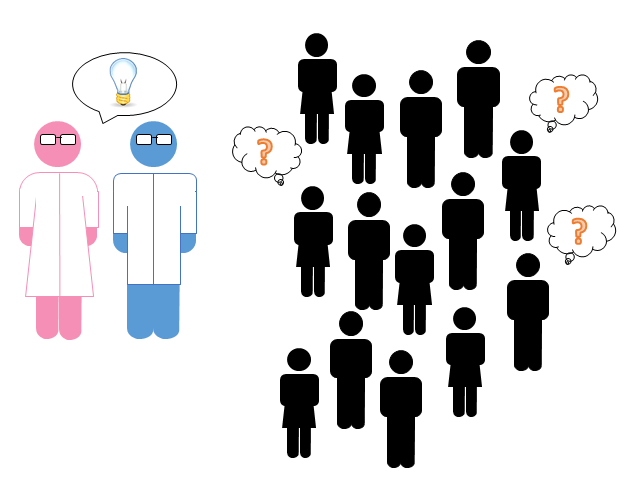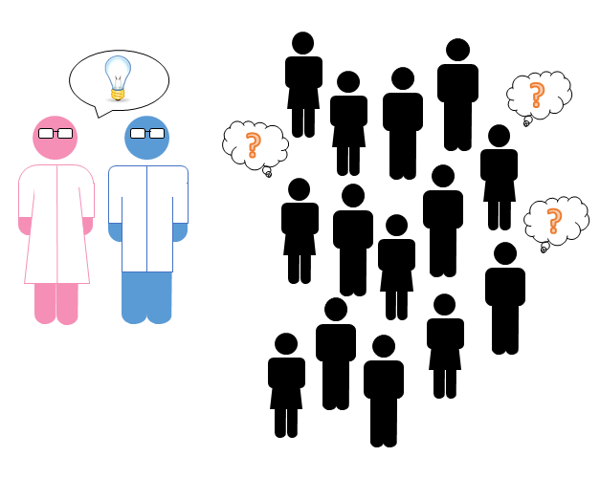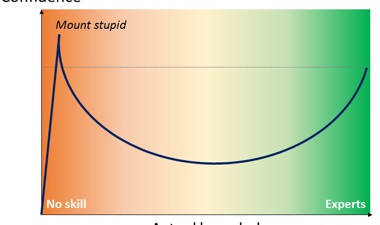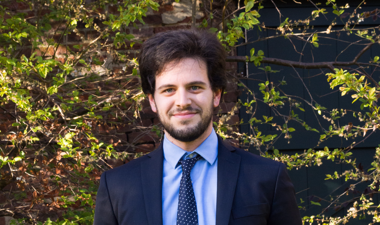On the importance of public scientific outreach

On the importance of public scientific outreach
Our public outreach responsible, which is also a ESR, talks about the importance of scientific outreach. A direct experience by a young researchers with a passion for journalism!

Being a PhD student is like a compromise: amazing and rewarding experiences can comes at the price of challenging, stressful, and sometimes frustrating years of one person’s life . Often PhD fellows just “give it all”: the research takes so much dedication that there are often few hours per week left for hobbies or free time. Of course, this is also true for MSCA fellows: EU funded young scientists have often additional tasks to fulfil. Travelling is nice, even if takes time, so it’s rarely considered a major bargain, but other activities might be. Public outreach might be considered as a boring and unpleasant duty, especially for people who are not interested in public relations. But communicate science to public doesn’t always have to be a harsh path, and on top of that, is extremely important, and the European Union is aware of this.
Let’s face it: keeping together most of the European countries under one market and one currency requires a confusingly enormous number of rules and laws, which translates into more bureaucracy, and thus more confusion. This tends to distance the common people from all the institutions in Brussels, and also from all the great initiatives they can benefit from. Sometimes those initiatives are so good to become immediately very popular. But adding science in the mix of complex regulations, most of the people will just loose interest and look elsewhere. This may be a reason why, for example, the Erasmus program is very popular, but the Marie Skłodowska-Curie Actions (MSCA) are still not so famous to the lay people. This is clearly a shame, since MSCA program is related to the Horizon2020 EU funding of €80 billion of available over 7 years[1]. MSCA contribution to European capacity of technology, science and innovation is outstanding. Proud of these results, the EU wants to make them as visible as possible[2].
The efforts done in this sense are clear: MSCA is present in all the major social medias, trying to both reunite the fellows to promote networking, and to show the amazing results that the young researchers are achieving. All across Europe conferences and events are organized, and all the fellows can make their project more visual by being “fellow of the week”. The Union is aware that this is not a battle that can win alone, but it needs all the fire power of its scientists.
Before starting my PhD, I already developed a healthy passion for scientific outreach, and I was trying to step from readers’ to writers’ side. Although taking the vast majority of my everyday time, engaging the life of MSCA fellow has made this passion burn brighter, as I understood how something that was only a personal delight, is actually of great importance. Nowadays, populisms are not only spreading in politics, but also in people’s trust in science. Some current Heads of State of major western countries do not believe in climate change (or conveniently claim so). Misbeliefs in vaccines are becoming popular even in the so called “first world”, which has full access to those medications: in Italy, for example, a dangerously high number of non-vaccinated children has forced the government to make some vaccinations compulsory by law[3]. The increasing severity of Atlantic rain storms, or the exposition in schools of young students to common but potentially deadly diseases, are examples of how treating scientific facts as personal opinions can dangerously affect people’s everyday lives.
Populists are extremely skilled in using modern means of communications to spread this way of thinking. But their weapons are not exclusives: scientist must, now more than ever, communicate to non-experts the importance of their research and their results using every possible tool available. This is never easy when you don’t have fashion advice, but you are trying to tell a young boy or girl “Please, study!”. But it must be tried as hard as doing actual science. Especially by the youngest researchers. Like post-docs. Or PhD students. Or like MSCA fellows. Like me!
Sources :
[1] https://ec.europa.eu/programmes/horizon2020/en/wha...
[2] https://erc.europa.eu/managing-your-project/commun...
[3] http://www.bbc.co.uk/news/world-europe-39983799


